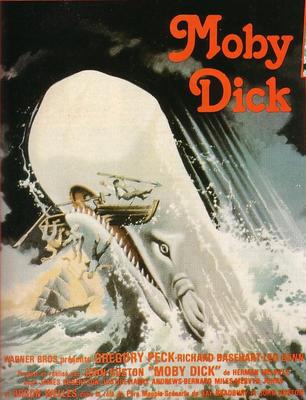No Time to Post Anything!
 I'm at the American Christian Fiction Writers (ACFW--they've got a great web site) conference in Nashville, and it's been tiring but fun. Back to back to back to back appointments all day with writers who represent a variety of levels of experience and maturity in their work, from those who are multipublished or about to be, to those who need to go back and address some of the fundamentals that bedevil all writers to some degree.
I'm at the American Christian Fiction Writers (ACFW--they've got a great web site) conference in Nashville, and it's been tiring but fun. Back to back to back to back appointments all day with writers who represent a variety of levels of experience and maturity in their work, from those who are multipublished or about to be, to those who need to go back and address some of the fundamentals that bedevil all writers to some degree. Chief among those challenges is the age-old problem called "show, don't tell"--so easy to say, so hard to teach, and yet we all know the difference when we read. As a great literary agent once said (no names here, but let's just say she and I have had children together!), one way to know whether you're telling rather than showing is to ask yourself whose POV a particular passage is in. If you can't find a point of view there--and that means the POV of a character you've established as a POV figure--then chances are very strong that you're telling rather than showing. Deidre used to gig me about that all the time where my own writing was concerned, because I had this tendency to fall into what she called "The Voice in the Clouds". Usually the writing in such passages was beautiful, but even the most gorgeous use of language is usually not enough to hold the reader's attention if he or she has a sense that the narrator has somehow left the building.
Chief among those challenges is the age-old problem called "show, don't tell"--so easy to say, so hard to teach, and yet we all know the difference when we read. As a great literary agent once said (no names here, but let's just say she and I have had children together!), one way to know whether you're telling rather than showing is to ask yourself whose POV a particular passage is in. If you can't find a point of view there--and that means the POV of a character you've established as a POV figure--then chances are very strong that you're telling rather than showing. Deidre used to gig me about that all the time where my own writing was concerned, because I had this tendency to fall into what she called "The Voice in the Clouds". Usually the writing in such passages was beautiful, but even the most gorgeous use of language is usually not enough to hold the reader's attention if he or she has a sense that the narrator has somehow left the building.One of the few times a writer has successfully (though some would debate this) used the "Voice
 in the Clouds" is in Moby Dick. Even though Ishmael is ostensibly your narrator, there are places where the narration seems to come from a god-like figure above the action. And some of what Melville does there is as good as gold: for instance, the chapter on "The Winding-Line" or something like that--a line of rope carefully traced around the perimeter of a whaling boat, prepared to unwind when a whale pulls on the hook far below--is absolute poetry. But most of us aren't Herman Melvilles, and anyway, it must be remembered that his inestimable classic was a flop at the time of its publication in 1851, the author all but forgotten for the next three-quarters of a century. So as I like to say to writers when taking note of those who successfully evade the rules, "Do not try this at home!"
in the Clouds" is in Moby Dick. Even though Ishmael is ostensibly your narrator, there are places where the narration seems to come from a god-like figure above the action. And some of what Melville does there is as good as gold: for instance, the chapter on "The Winding-Line" or something like that--a line of rope carefully traced around the perimeter of a whaling boat, prepared to unwind when a whale pulls on the hook far below--is absolute poetry. But most of us aren't Herman Melvilles, and anyway, it must be remembered that his inestimable classic was a flop at the time of its publication in 1851, the author all but forgotten for the next three-quarters of a century. So as I like to say to writers when taking note of those who successfully evade the rules, "Do not try this at home!"At the conference, I've been heavily promoting three books: Story by Robert McKee, Writing Well by Donald Hall, and Dare to Be a Great Writer by Leonad Bishop. The first of these, which I've only begun reading recently, is nothing short of a revelation. It's about screenwriting, and has little to say with regard to the novel, but novelists would do well to gain some understanding of the screenwriter's discipline, which is indeed a discipline in all senses of the word. Even more important, McKee forces the honest reader/writer to ask hard questions as to the core story he or she is trying to tell, and makes it clear that anything that doesn't serve the purpose of that story must be cut out.
I'm reminded of how awed I was by the writing of the original Die Hard movie.  It's hard to see it afresh now, because that sort of plot has been done so many times since then--and usually quite poorly, as in the two sequels--but when it came out, that movie was one of the freshest, most original things I'd ever seen. There's not an ounce of fat on that script, which is as close to perfection as just about any piece of writing I've ever encountered.
It's hard to see it afresh now, because that sort of plot has been done so many times since then--and usually quite poorly, as in the two sequels--but when it came out, that movie was one of the freshest, most original things I'd ever seen. There's not an ounce of fat on that script, which is as close to perfection as just about any piece of writing I've ever encountered.
In typical fashion, I've had plenty to say--probably too much--at a time when I thought I was just about talked out for the day. And the ridiculous thing is that I could write more still, only I need to get some rest for another long series of appointments tomorrow. One last thing, though, about this conference: if you think the Christian element equates to boring, stodgy, or any of the other qualities that might naturally come to mind when that word is mentioned, you're actually behind the curve. There's an amazing amount of diversity within the CBA (Christian Booksellers' Association), and even more so in the realm of Christian writers whose work is being published in the larger ABA (American Booksellers' Association) market. And while there's still plenty of CBA fiction that your ninety-eight-year-old great aunt Irma could read without batting an eye, a number of writers are pushing the boundaries where portrayals of such touchy subjects as spirituality and sexuality are concerned. As with many another arena of creative expression, it's great to know the parameters--and then to challenge them.

4 Comments:
This comment has been removed by a blog administrator.
No time to post anything, huh?
Looks like an Long anything to me *grin*
Glad you are having a great time.
Was fascinated by your explanation of Telling vs. Showing. "If" I were to write...that would be a problem with me. I do that now with regular writing. I love to hear and read about the inside world of authors and their writing ...it is so much more complex and demanding than I ever dreamed.
Daunting too.
And that whole "Telling vs. Showing" thing doesn't really seem a lot easier no matter how much experience one has. That's where in some ways writing is like, say, juggling or drumming: you just have to get into the groove and not think too much about what you're doing, or you'll lose your rhythm. But just as a drummer knows if he's off the beat, deep down a writer knows when the material is boring--a good indication of telling rather than showing.
Without thinking about it too much, as I say, my idea is to write with the principle in mind that you won't explain anything unless it absolutely has to be explained. I'm not talking about being obscure here; rather, I think most of us tend to err in the oppposite direction, spoon-feeding background information to the reader when we should just focus on telling a good story.
And so many of us ACFWers loved meeting you face-to-face, Judson and getting to talk with you.
Post a Comment
<< Home